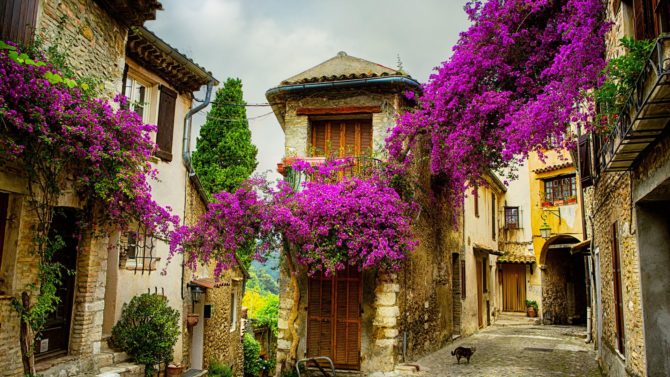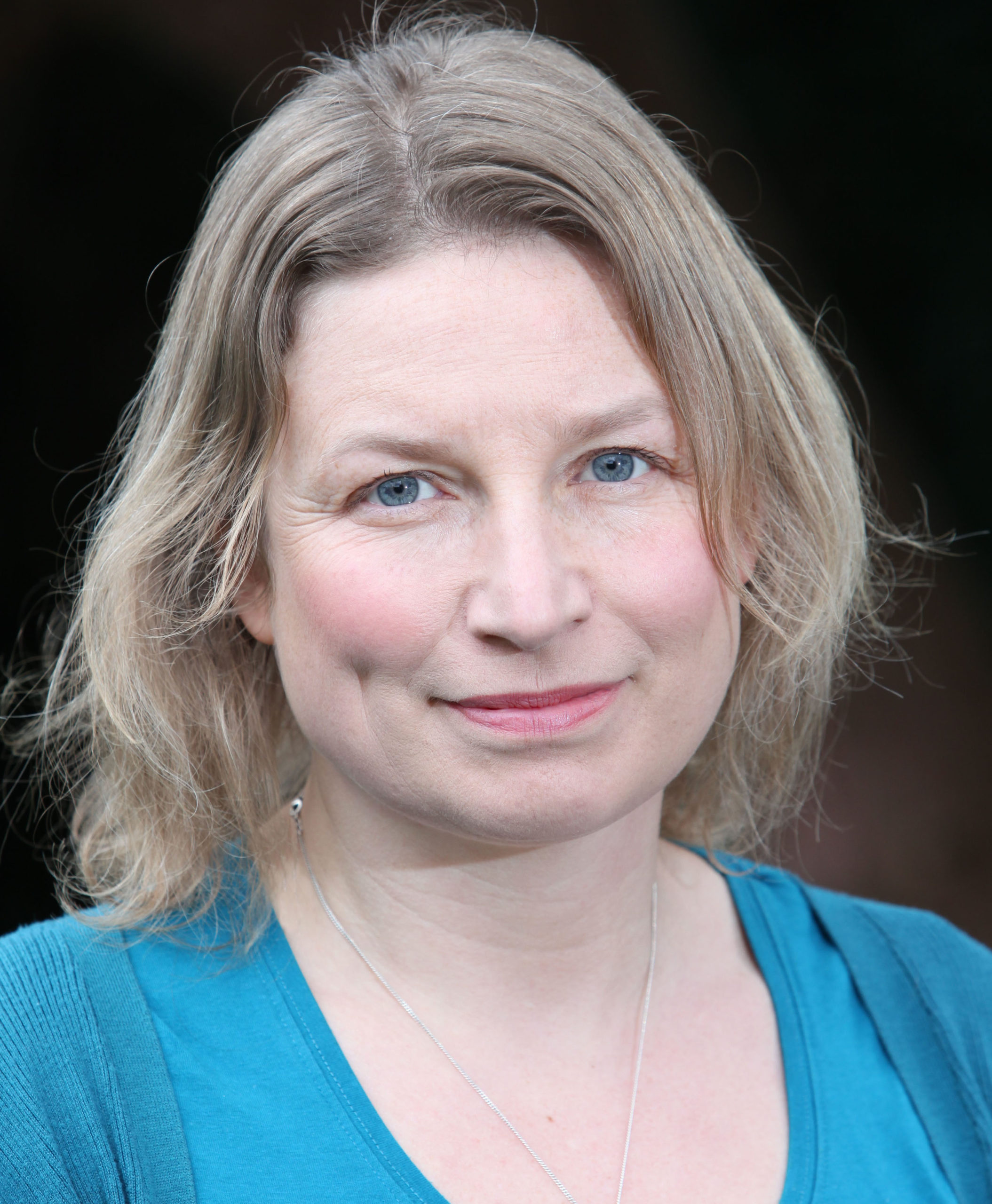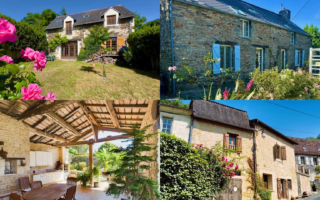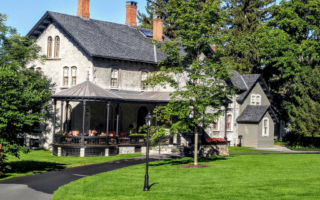How to buy a house in France – a quick guide


Congratulations! You’ve found your dream home in France and would like to buy it. The French property buying process usually takes three or four months. Here’s a checklist of what happens at each stage and what you need to do.
Consider the costs
Agency fee: The listed price of the property should include the agency fee. Even if it does not, French estate agents are legally obliged to make it clear what commission they will charge, typically around 5% of the purchase price. Of course, if it’s a private sale, there is no agency fee.
Don’t be offended if agents ask you to justify where your funds will come from and to back that up with evidence. This is part of their duty of care.
Notaire’s fees: You will also have to pay the conveyancing fees to the legal expert, who is called a notaire. Typically, notaires’ fees and the various taxes they are responsible for collecting on behalf of the government will add an additional 7-8% to the cost of purchase.
Independent legal advisor? Many notaires are happy and confident conducting transactions in English, but not all. Unlike solicitors in the UK, they act on behalf of the state; it is not their job to advise either the buyer or the seller. So, unless you are confident about communication and the buying process generally, you may decide to appoint an Anglophone independent legal advisor who specialises in French property law.
Mortgage considerations: Will you require a French mortgage? They work a bit differently from UK mortgages, but mainly to the advantage of the borrower.
Survey? You may have heard that the French don’t bother with pre-purchase surveys. However, before making an offer, they do often ask a builder to view the property and quote for any necessary remedial works. As the compulsory diagnostic surveys carried out as part of the purchase process are quite limited, a structural survey can be a good investment and there are several chartered building surveyors operating in France.
Other costs: If you’re factoring in renovation work to your budget, bear in mind this is likely to be significantly more expensive than in the UK. Other costs to consider are utilities, insurance, travel costs, TV licence fee (even if you don’t watch the telly) and property taxes – taxe foncière and taxe d’habitation (the latter has now been phased out for residents but not for second home owners).
Apartment? If you’re buying an apartment, there are some other rules and costs to bear in mind.

Check for defects
Before making an offer, ask to see a copy of the Dossier de Diagnostic Technique Immobilier (DDT), which details the presence of any asbestos, lead, termites, dry rot or (a recent addition) aircraft noise pollution at the property, as well as the state of any electricity, gas or individual drainage installation (ie whether the septic tank conforms to the required standards). The DDT will also state the surface area of the property and say whether or not it is in an area at risk from flooding, earthquakes, avalanches, radon gas, mining or potentially hazardous industry.
Most sellers can provide the DDT upfront. However, as some of the inspection reports are valid for a limited time, some sellers won’t commission the DDT until they are certain a prospective buyer is serious. Either way, you need to see the DDT before signing the preliminary contract.
If you have decided to do a pre-purchase survey, ideally get it done before you make an offer or at least before you sign the preliminary contract, which is a legally binding document. If you are too worried the house will sell in the meantime, just bear in mind that you won’t be able to use the survey results to renegotiate the price after you have signed the preliminary contract. You could, however, pull out of the sale after signing the contract, as long as this is done within the 10-day cooling-off period (see below).
Make an offer
This is where having a good relationship with your agent really counts, as she or he should be able to advise you on whether or not there is room to negotiate on the price.
When your offer has been accepted, the estate agent or notaire will provide you with a draft preliminary sale contract, which will almost certainly be a compromis de vente, though there are other possibilities.
You may decide to have its terms checked by an independent legal advisor specialised in French property matters unless you have a high standard of French and understand the terminology. Unlike a notaire, an independent legal expert will be able to advise you on whether it would be beneficial to you to have certain conditions added into the contract before you sign it.
Start looking for a currency service
Using a specialist currency service is the savvy way to move your money to France and could save you thousands of pounds compared with using your high street bank.

Decide on the ownership structure
If you are buying the property with someone else or a group of people, you need to agree how you will own it. There are three main ownership structures: en indivision, en tontine and Société Civile Immobilière (SCI).
En indivision: This is the default option, equivalent to ‘tenants in common’ ownership in the UK. Each owner has a share in the property and the ratio can be set however you wish, often reflecting the level of financial contribution. For example, a married couple might each own a 50% share while two friends might split the ownership on a 75:25 ratio and three people might split it 50:25:25.
En tontine: This is like ‘joint tenants’ ownership in the UK. It means that you each own equal shares and if one of you dies, the survivor becomes the sole owner. This type of ownership needs to be added from the start as a clause in the contract. You can’t add it retrospectively.
Société Civile Immobilière (SCI): This is a type of non-trading company created specifically for two or more people to own and manage a French property. It is most often used to jointly buy expensive properties to rent out.
The ownership structure you choose will determine how the property is passed on after the death of one of the owners and how inheritance tax will be imposed, so it is a good idea to seek independent legal advice, especially if you have children from a previous relationship.
Check the contract
Unlike in the UK, a legally binding contract is signed early on in the buying process, so it is very important to do your research and any negotiation before you sign it.
The early commitment is generally to your advantage as it puts a legal obligation on the seller to complete the transaction by a target date, protecting you from being gazumped.
However, it also legally binds you to complete the transaction or lose your deposit, subject to any conditional clauses in the contract.
So, it is very important to have any relevant conditions (called clauses suspensives) inserted into the contract if required. For example, you might insist on a clause clarifying that you will only proceed if you are successful in getting a mortgage or planning permission for certain works. If you can’t secure this, you can withdraw from the purchase and get your deposit back. An independent legal advisor can help with this.
Bear in mind that the land registry ‘plan cadastral‘ attached to the contract will give only a rough outline of the boundaries of the plot of land you are buying. If the absolute accuracy of the boundaries and/or surface area is important to you, you will need to commission a land surveyor (géomètre) to draw up a ‘plan de bornage‘.
Check if the property is subject to any rights of way or other easements. It may be, for example, that your next-door neighbours would have the right to cross your land in order to reach their property.
An independent legal advisor acting on your behalf would also be able to check the seller’s title deed to identify any works that have been carried out during the seller’s period of ownership.

Sign the contract
Most buyers sign the contract in France at the estate agency or notaire’s office. However, as a result of Covid-19 lockdowns, some notaires have brought in technology enabling documents to be signed and witnessed via video-conferencing. It is also possible to sign a power of attorney giving the notaire’s office authority to sign the contract on your behalf.
There follows a 10-day ‘cooling off’ period during which you are free to withdraw from the transaction without penalty or explanation. This countdown does not begin when you sign the contract, but on the day after you receive a copy of the contract signed by all parties, whether that arrives by registered post or secure email, or is physically handed to you by the notaire or agent.
If you want to go ahead with the purchase, you don’t need to do anything and can simply pay your deposit at the end of the cooling-off period. But if you want to back out, you must alert the agent and/or notaire by sending a registered letter dated before the 10 days are up.
The deposit (dépôt de garantie) is usually 5-10% of the sale price (not including the notaire‘s fees)
Conveyancing
The notaire will now begin carrying out the necessary searches.
She or he will also contact the mairie and the French agricultural agency SAFER. Depending on the type and location of the property, one or both may have right of first refusal (droit de pre-emption) on it, meaning they could buy it for the agreed purchase price if it were deemed an important asset for the commune or farming community. This very rarely happens, however, and if they fail to respond within two months of being notified, they are understood to have waived their right.
Sign the acte de vente
To complete your French property purchase you need to sign the final purchase-sale contract called the acte de vente. This is usually done in the notaire’s office in the presence of both the notaire and the sellers.
Use your specialist currency service to transfer the completion monies to the notaire’s bank account in plenty of time to ensure they are there by the completion date.
Make sure that you fully understand the draft acte de vente and its attachments before signing, taking advice from an independent legal specialist if necessary.
Again, as a result of the pandemic, some notaires have introduced electronic signature software and video-conferencing to enable buyers to complete a property purchase remotely. Completion can also be done remotely by power of attorney. But attending the notaire’s office in person to complete the process and meet the vendors is usually a positive experience for buyers. It has the added advantage that you can view the property shortly before your appointment to check that everything is in order (or ask your agent to send you a video in advance). You’ll also be handed the keys afterwards and will be able to move into your new home right away!
After completion, the notaire will send you ‘attestations’ confirming that you have bought the property. You will also receive a copy of the signed acte de vente, although this may take several months.
Think about inheritance
Remember to include your new French home in your succession planning, as inheritance rules work differently in France from the UK. This might mean having a separate French will, depending on your circumstances. Seek professional advice.
Now all that remains is to enjoy your new home in France! Bon courage and bon voyage!
Share to: Facebook Twitter LinkedIn Email
More in Foreign currency, French law, French property buying guides


